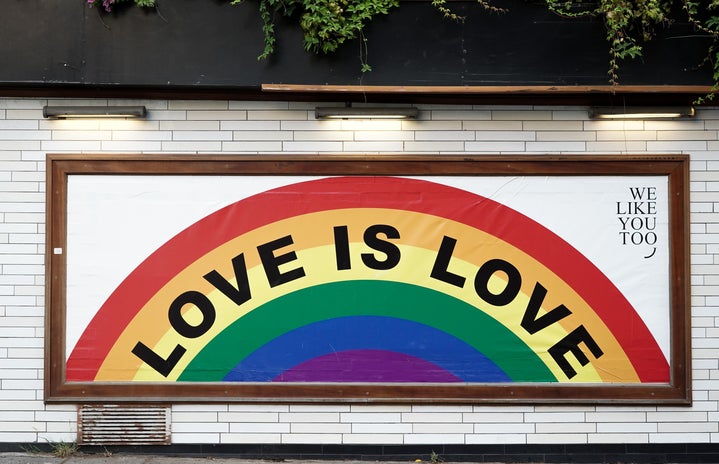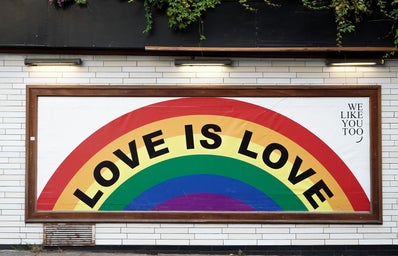February is LGBTQ history month. As a Bisexual woman myself, I find the month essential in providing education to those that question why we need such months. While June may be the pride month for members and allies to share their support and solidarity with the community, February shares the reasons why it’s essential to continue celebrating the community and keep advocating for change.
Considering the new and ever-changing attitudes and laws, one might think that the cause has become somewhat redundant, but this is not the case. Now, more than ever, it is pivotal we continue to share the history of the cause.
So why is celebrating the month so essential to our society in the age of social revolution and change?
The conservatives have stated that they’re providing adjustments to the legal system to accompany the ‘diverse and tolerant society that we now live in’, however, is this true? Members of the LGBT community on average have a lower life satisfaction rate than the average Brit, Trans men, on average, would score their satisfaction a mere 5 out of ten with trans women scoring it 5.5 (the average brit would score a 7.7). In the new enlightened age, it is essential to reminisce on the history of the cause to create an essential change in attitudes and legislation.
The global revolution of the 1960s saw the Stonewall riots, which are the most widely considered catalyst for the gay rights movement but the events from these riots are not the only thing we need to remember.
If we were to consider the context of the history concerning the UK, I feel the most relevant part of British history and the LGBT movement is the section 28 article that Margret Thatcher’s government introduced back in the 80s. It prohibited the promotion of homosexuality, especially within schools and the education system. This law enforced a new, hidden method of homophobia which led to heavy censoring of members of the LGBT community as well as the rights movement itself. This awful article wasn’t revoked until 2003, which I was shocked to find out. It feels so outdated and harmful to the community so how did it stand for all those years?
The next year, civil partnerships were legally recognized between two same-sex couples however this law came with issues itself. It focused on assigned birth and stated that if a member of the partnership were to change their gender, then the partnership would be void. It didn’t recognize gender in the way that LGBT accommodates for and expressed ignorant attitudes to gender identity and sex. In 2013 this was replaced with the legalization of same-sex marriage. While a considerably big step there was still a mass divide in the commons, especially within the tory party. The divide is reminiscent of the sentiment that’s massively carried out within society and it’s what the history month is essential for, dissolving the sentiment and replacing it with one of acceptance, not just tolerance, as well as equality and justice.
Homosexuality has always been considered illegal, in England homosexuality was made illegal by Henry the VIII in his 1533 buggery act, this was amended in 1885 and then it wasn’t until 1967 that homosexuality was made legal in the UK. It’s clear that while this was a big first step, in the pool of equal rights it was only a drop in the ocean. The sexual offences act also wasn’t as great as it first may seem, it still censored the sexual acts of gay men and lesbians which provided a clear wedge in the formation of a tolerant society. By making such things private it is clear that the stigma around gay men and gay sex was a massive issue.
In 1985 there was a British social attitude survey and over 75% of participants said that homosexuality was always wrong. This statistic provides evidence that the movement needed much more than legislation to aid it, it needed a change in attitudes that no one was willing to provide within government.
These attitudes are why the focus on LGBT history month is so essential every year.
The stonewall riots saw the Gay Liberation Front (GLF) being formed in the Uk as the aftermath. They published their manifesto in 1971 and 1972 saw their first, now annual, pride march in solidarity with their oppressed group, as well as others. While the GLF disbanded in 1973 their legacy lives on and should be remembered throughout the history month.
In what ways can we change history now and what is so essential about the history month in 2022? While many laws and legislations have come into place to accommodate for the community and its equality within society, many had little, or rather, damning effect.
In what ways can we make history this year so we can celebrate them next year?
The main focus presently is on the healthcare system and making trans individuals have better access to healthcare to aid their transition. The accommodations provided to support trans individuals aren’t enough to prevent the negative repercussions of gender dysphoria. Long waiting lists and unrealistic private prices mean individuals cannot transition without a consequence. Services that aid a transition is essential to the inclusivity of the trans community within. Society. Within the trans community, there is also an emphasis on gender recognition for non-binary individuals and other such genders that don’t fit into the binary. These consist of advocating for their pronouns on forms of identification, greater awareness is being enforced also about the link between assigned sex at birth and that of gender identity and expression.
This year there is a focus on harassment also. A shocking 40% of the LGBT community have been harassed in their life because of the way they identify. There is a focus on increased laws for the hate crimes that the community is subjected to and more adequate punishments for the perpetrators.
Throughout history there has been ignorance and prejudice against the community, a stigma that they challenge the natural order for a rich cis-gender white man’s success. LGBTQ+ History Month wants to raise awareness of the changes that have been made and the changes that are yet to come. It wants to draw to light that the struggle isn’t over and is far from over. It’s not only laws that need to change, its attitudes as well that are required for change. It’s not just enough for laws anymore, the government, as well as individuals, need to become more self-aware, educated and accepting, therefore LGBTQ+ History Month is essential. The gay rights movement is a powerful force for change we must remember and honour this month to keep up the fight.
So, let me ask again, in what ways can we make history this year so we can celebrate them next year?


